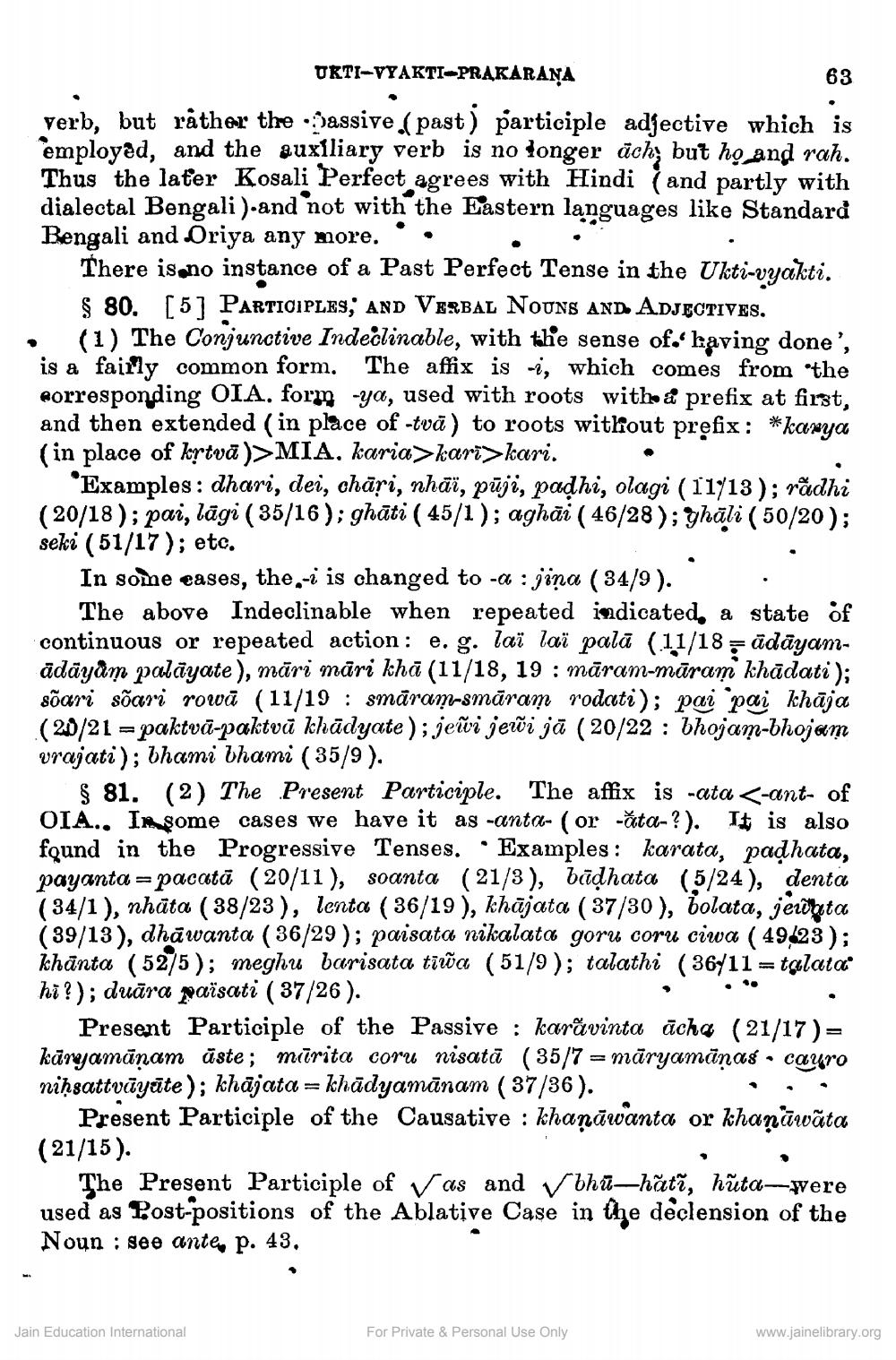________________
URTI-VYAKTI-PRAKARANA
63 verb, but rather the assive.(past) participle adjective which is 'employed, and the auxiliary verb is no longer äch; but ho and rah. Thus the later Kosali Perfect agrees with Hindi and partly with dialectal Bengali )-and not with the Eastern languages like Standard Bengali and Oriya any more. ' . . .
There is no instance of a Past Perfect Tense in the Ukti-vyakti. § 80. [5] PARTICIPLES, AND VERBAL NOUNS AND ADJECTIVES.
(1) The Conjunctive Indeclinable, with the sense of having done', is a fairly common form. The affix is -, which comes from the corresponding OIA. form ya, used with roots with & prefix at first, and then extended (in place of -tvā) to roots without prefix: *karya (in place of krtvā)>MIA, karia>karī>kari.
*Examples: dhari, dei, chāri, nhãi, pūjë, padhi, olagi (11713); rădhi (20/18); pai, lāgi ( 35/16); ghāti ( 45/1); aghai ( 46/28); yhāli ( 50/20); seki (51/17); etc.
In some cases, the,-i is changed to -a : jiņa ( 34/9).
The above Indeclinable when repeated indicated, a state of continuous or repeated action : e. g. laï laï palā (11/18 =ādāyanādāyām palāyate), māri māri khā (11/18, 19 : māram-māram khādati); sõari sõari rowā (11/19 : smāram-smāram rodati); pai pai khāja (20/21 - paktvā-paktvū khādyate); jewi jewi jā (20/22 : bhojam-bhojam vrajati); thami Dhami ( 35/9).
§ 81. (2) The Present Participle. The affix is -ata <-ant- of OIA.. In some cases we have it as -anta- (or -ăta-?). It is also found in the Progressive Tenses. • Examples: karata, padhata, payanta = pacatā (20/11), soanta (21/3), bāờhata (5/24), denta ( 34/1 ), nhāta (38/23), lenta ( 36/19), khājata ( 37/30 ), bolata, jeta (39/13), dhāwanta (36/29); paisata nikalata goru coru ciwa ( 49423); khānta (5275); meghu barisata tība (51/9); talathi (36/11 = talata hi?); duāra païsati ( 37/26).
Present Participle of the Passive : karāvinta acha (21/17)= kāryamānam üste; miūrita coru nisatā (35/7 = māryamānas cauro niņsattvāycīte); khājata = khādyamānam ( 37/36).
Present Participle of the Causative : khaņāwanta or khaņāwāta (21/15).
The Present Participle of vas and bhū—hătî, hūta—were used as Post-positions of the Ablative Case in the declension of the Noun : see ante, p. 43.
Jain Education International
For Private & Personal Use Only
www.jainelibrary.org




